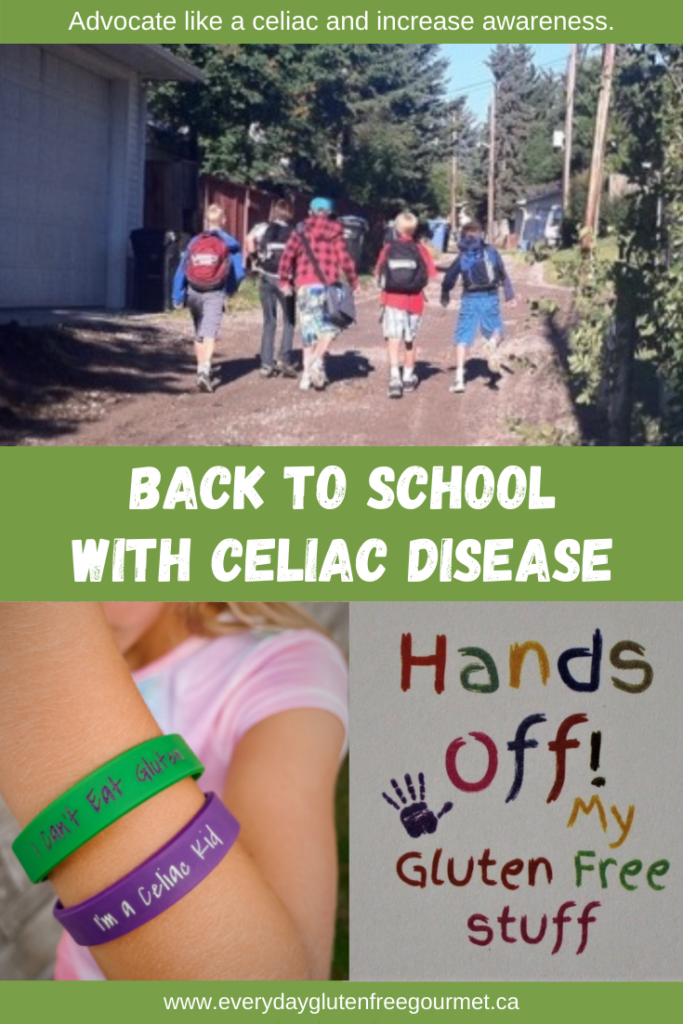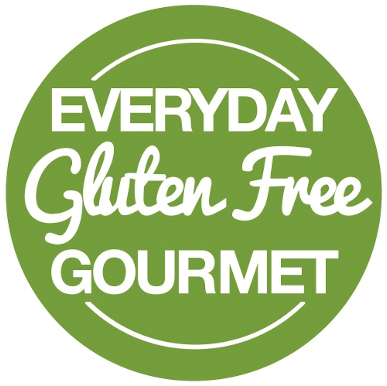In late August and early September people are planning for the school year. But back to school with celiac disease, food allergies and anaphylaxis requires more preparation for both parents and students. We all have a lot of work to do to increase awareness and create safe environments for all students. Coming from a place of curiosity and being open to learning ourselves is the most productive way to support positive change.
In this blog post I'm sharing ideas for change. The more conversations we have the more likely we are to create change. Let's get the topic of food safety happening in school communities everywhere.
The Food Allergy Community
Food has woven its’ way into almost every activity we do and no where is it more apparent than at school. From kindergarten to university, people with food restrictions need to know details about food and food safety every day. It's exhausting yet necessary.
This community includes people with celiac disease, gluten intolerance, food allergies, anaphylaxis and more. When all these groups come together their voices are stronger and they can work together toward the same goal. A food allergy community exists at your school. You may have to be the person that brings it together but I can guarantee it's there. When you're not worried about teaching people the difference between food allergy and autoimmune disease you can work together toward a common goal.
Food Allergy Club At School
If you're curious to know what a club might look like check out this blog post, Food Allergy Club at School. In this post I share lots of ideas to connect the group of students affected by food restrictions in a fun way. I came up with this idea during my years on the Parent Council at elementary school listening to the everyday challenges and frustrations parents and students faced. The irony that Special Events, intended to build community, excluded children with food restrictions was a hot topic. Since every event included food many parents kept their kids at home and they wanted to change that.
I believe kids can come up with creative solutions to these common problems. With some support and guidance they can make new friends and have fun in the process. If your child is going back to school with celiac disease share the idea of Food Allergy Club and see what happens. It might turn out to be a fun experience and if you're lucky you may even find a teacher with celiac disease to help.
Food, Health and School
An even broader category is food and health. With the rise in children with Type II diabetes, childhood obesity and more many parents are interested in this topic. There is more opportunity here and when we work together we will create change.
When my son was young the school council started a parent committee called Comprehensive School Health. Over time this committee took on different awareness campaigns. When I was the chairperson I met two parents who were concerned about peanut anaphylaxis and egg allergy. Knowing they represented a small number of students I encouraged them to volunteer on the Comprehensive School Health committee. They accepted and this larger focus allowed them to include the topics that were important to them while promoting ideas about healthy living and food safety.
How To Advocate Like A Celiac
Celiacs know how to advocate and are teaching their kids to speak up from an early age. By using the same skills you can introduce the broad topics people are interested in and figure out how to get food restrictions included. The conversation will look different in each community and at different levels of education and the exact topics will vary. No matter what I guarantee there are concerned students and parents everywhere.
Here are some broad topics I would use to describe the concerns I hear from parents and students all the time.
- Food Allergy Awareness
- Food Safety for celiac disease and anaphylaxis
- Nutrition and Healthy Living (specifically too much sugar)
- Food Bullying
- Emotional Eating and Childhood Obesity
What conversations do you want to have? What do your kids want other students to know?
Some educators and parents are thinking outside the box. Teachers have banned food from the classroom and reinvented the class celebration. By providing students with opportunities to share their interests they are also learning that you can have fun without food. It may only be in a small number of classrooms but it is happening.
PIN for later...

Raising Awareness About Celiac Disease
Sure, we have Celiac Awareness Month and that’s an excellent time to create a campaign at your school. I agree with Ellen of The Celiac Scene who says every day is celiac awareness day for her. Students, parents and educators can use every opportunity to raise awareness about the differences within the food allergy community and still be focused on the same goal. You never know what small action will shift someone’s perspective, create another advocate or have some positive impact on your school community. It all helps.
Are you in a position to take one of the following steps?
- Start a conversation about food at school.
- Add a positive spin to the current conversation.
- Steer the conversation toward action.
- Broaden the conversation to include a larger group (food and health) to engage more parents in the issues.
- Insert a slide into a presentation or a paragraph into an email on this topic.
- Do a school survey to understand the numbers and share the results.
- Have students do a survey and write their own questions.
- Support interested parents and students to take action. Every colouring contest and poster is important.
- Take the action you want to see.
Stay open to learning more about the unique circumstances and challenges of each other. I’m confident that together we can create safe and caring environments.
Post Secondary Education
On top of the many pressures of higher education students with food restrictions have an extra burden. They need to find safe food and advocate for themselves while still trying to fit in. For many reasons young adults going back to school with celiac disease are the most likely to not adhere to the gluten free diet. This will have life long health consequences making it another important area where we need change.
Some campuses are leading the way by offering safe food options and exclusively gluten free kiosks. If you're involved in the education system at the post secondary level look for opportunities and create meaningful change.
Resources For Back To School
It's inspiring to me to see the number of people supporting the celiac community. These are some of the group I follow to keep up on a variety of topics in the larger food allergy community. Look for stories that inspire you and keep you motivated to create change.
- Canadian Celiac Association - https://www.celiac.ca/ and sign up for free to get your copy of the Growing Up Celiac resource. Under additional resources look for Teacher Letter you can download and take to school.
- Allergic Living https://www.allergicliving.com/ - This site is loaded with resources, look for the Food Allergy Anxiety Guide to support them.
- Celiac Kid Stuff https://celiackidstuff.com/ - Fun stickers, wristbands and more perfect for everyday use.
- Beyond Celiac - https://www.beyondceliac.org/
- Gluten Intolerance Group (GIG) - https://gluten.org/
- Celiac Disease Foundation - https://celiac.org/
- Gluten Free Watchdog - https://www.glutenfreewatchdog.org/
- Turn It Teal - https://www.turnitteal.org/. If you love Halloween learn about the Teal Pumpkin Project and plan to have a lot of fun.
- Listening to PODCASTS is a great source of information on all topics celiac, join them all and find your favourites.
- A Canadian Celiac Podcast - https://acanadianceliacpodcast.libsyn.com/
- The Celiac Project Podcast - 2 Guys Talking Gluten Free - https://www.celiacproject.com/the-podcast/
- Gluten Free News - https://shows.acast.com/gluten-free-news
Let's work together to help others understand the impact food restrictions have on daily life for children. Leave a comment below if you have something you'd like to add to the conversation.
Originally posted August 2019, updated August 2021.

















Leave a Reply